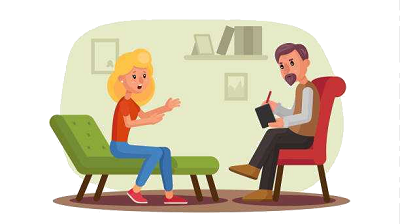Maintaining Gains in OCD Treatment: Teachable Applications and an Introduction to Advocacy as the Final Step in Recovery
Maintaining Gains in OCD Treatment: Teachable Applications and an Introduction to Advocacy as the Final Step in Recovery

There are clear treatment standards for the treatment of obsessive compulsive disorder (OCD) which offer impressive outcomes and allows individuals to return to high-levels of functioning. Exposure with response prevention (ERP) and a combination of medication are the gold-standard treatment for OCD and through a goal-oriented treatment approach, individuals with OCD (across severity levels) can significantly reduce their overall symptomology, learn tools for relapse prevention and enter the maintenance stage for their diagnosis.
Management of OCD symptoms differs among individuals, their treatment, motivation levels and future life stressors. Relapse prevention is among the most important skill for patients to actively engage in and is the tool which allows them to manage their symptoms effectively in the future. It is clear through the literature that continued maintenance requires effective treatment tools learned in treatment, which would include a clear understanding of how one can apply these ERP skills across all sub-types of OCD. Oftentimes in treatment the focus is on current symptomology and the application of ERP to effectively control those behaviors. However, it is our duty as clinicians to ensure as termination is nearing that our patients understand how to apply ERP and CBT across all OCD and anxiety presentations. This understanding alone can help patients have clarity around the tools they have already learned which can be used across sub-types and symptom presentation. This is critical for patients, if and when symptoms increase in the future so they can quickly use their skills versus believing they have relapsed, stating they have never had this type of OCD and don’t know how to use ERP for this. Ensuring treatment was not limited to presenting symptoms is critical for continued symptom maintenance for our patients.
We see the emergence of mental health advocates telling their stories in an effort to help others. We are among a generation who is speaking out about mental health more than ever before and are witnessing mental health stigma begin to reduce. I have served as an OCD advocate (first ever national spokesperson for the International OCD Foundation (IOCDF)) and have watched so many begin on a similar path. This action provides an opportunity to inspire others to seek treatment and reduce stigma. I often find myself wondering if this is part of the final step in treatment. Advocacy and using our story to help others doesn’t mean we no longer struggle with our conditions. It doesn’t mean we don’t still need treatment. However, it does allow us to find purpose in our pain and gives meaning to a diagnosis we often spent years wondering why we received. When we think about the 12-step model of recovery for addiction we understand the significance of being a sponsor as the final step. I don’t know that advocacy is a requirement but does serving others give individuals the motivation they need to both continue their own treatment and management? Maybe this step gives individuals the purpose we are often seeking for an otherwise painful disease.












